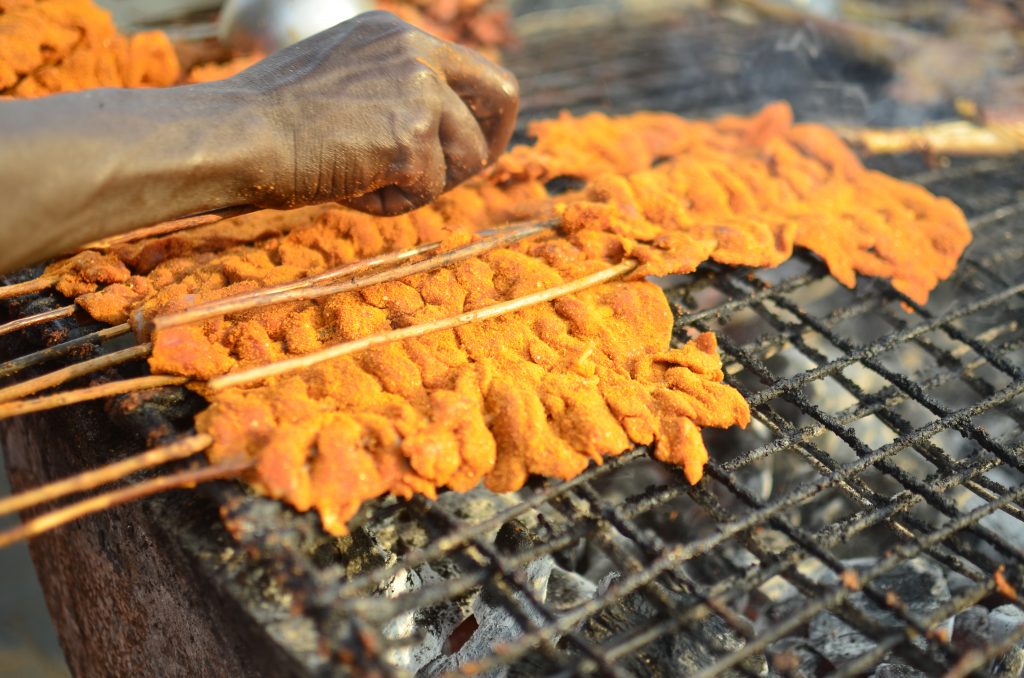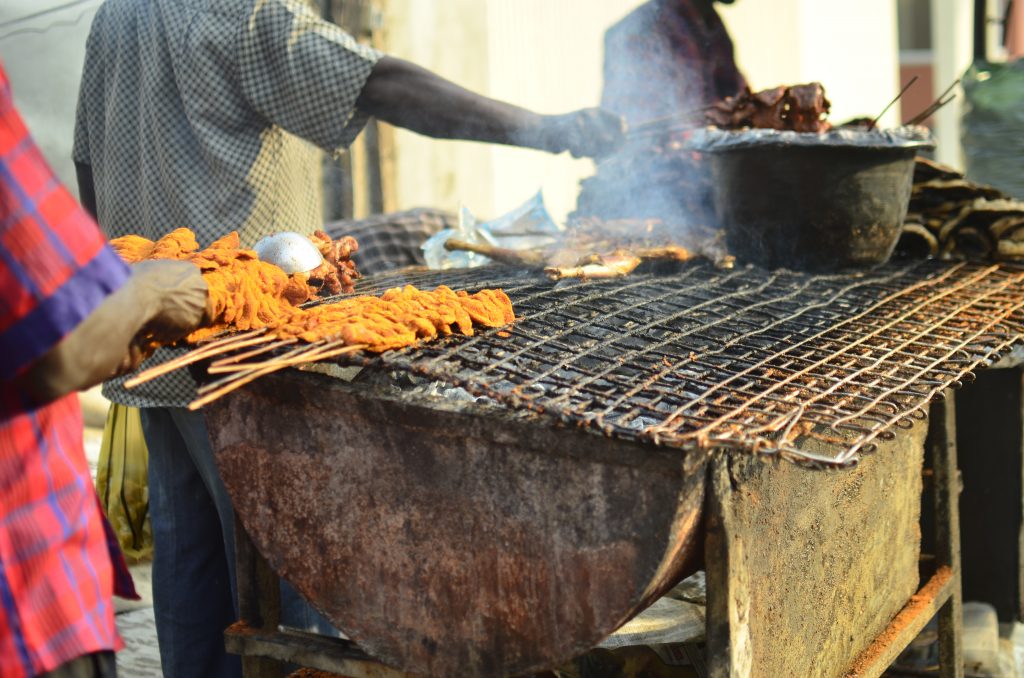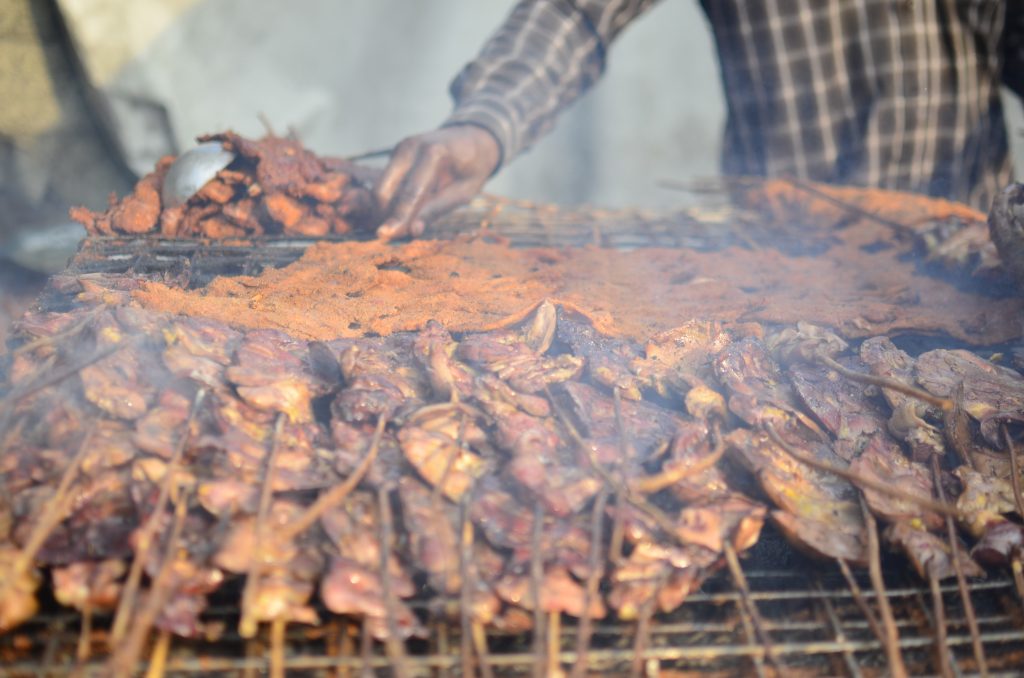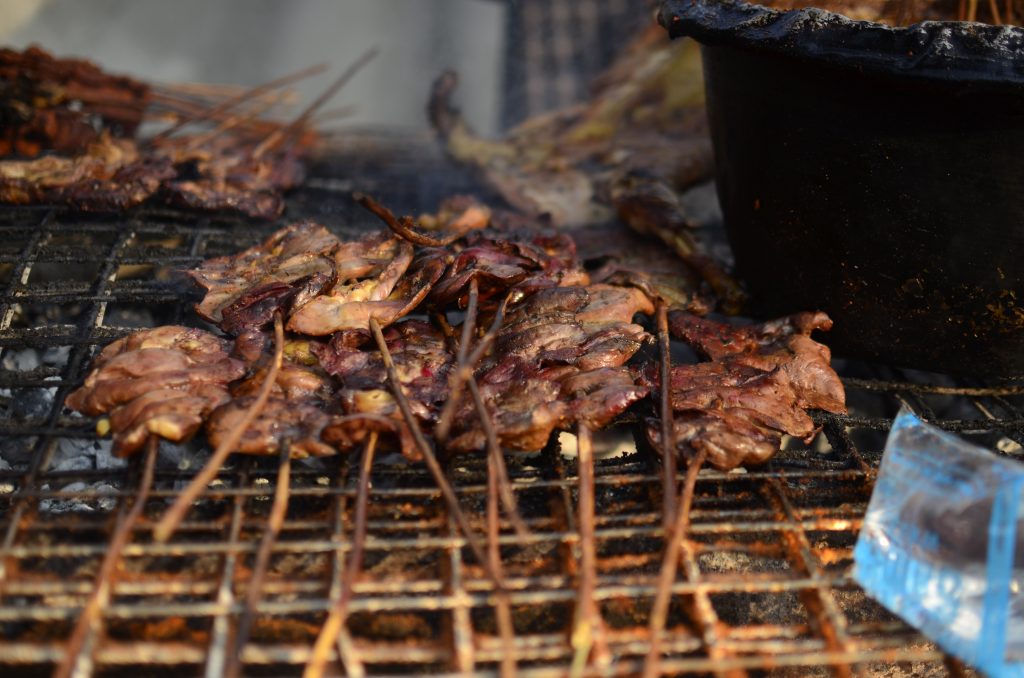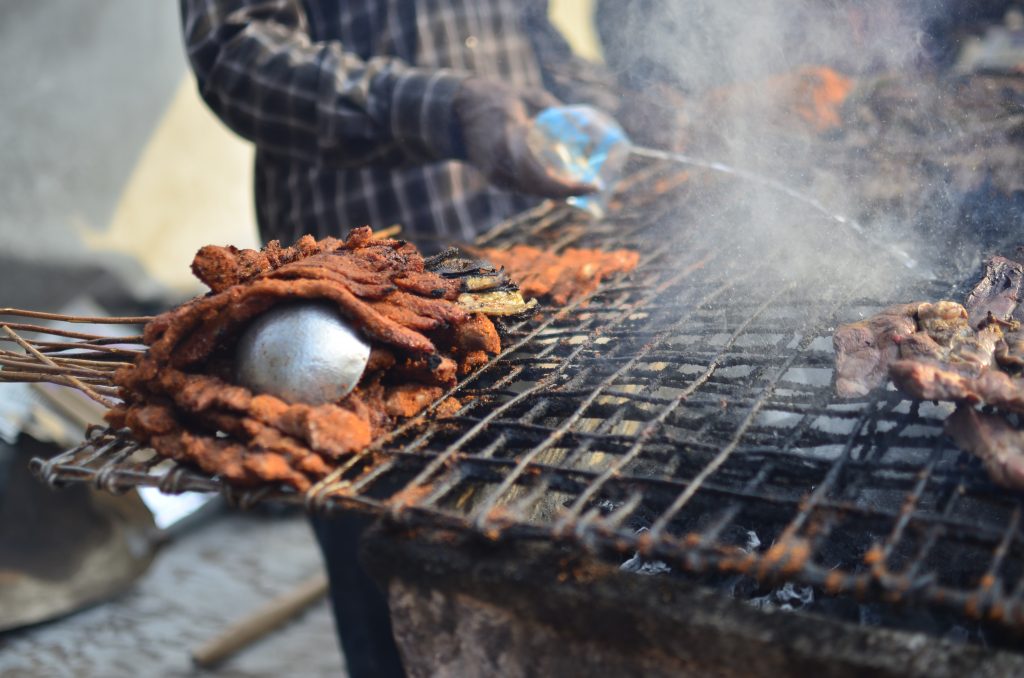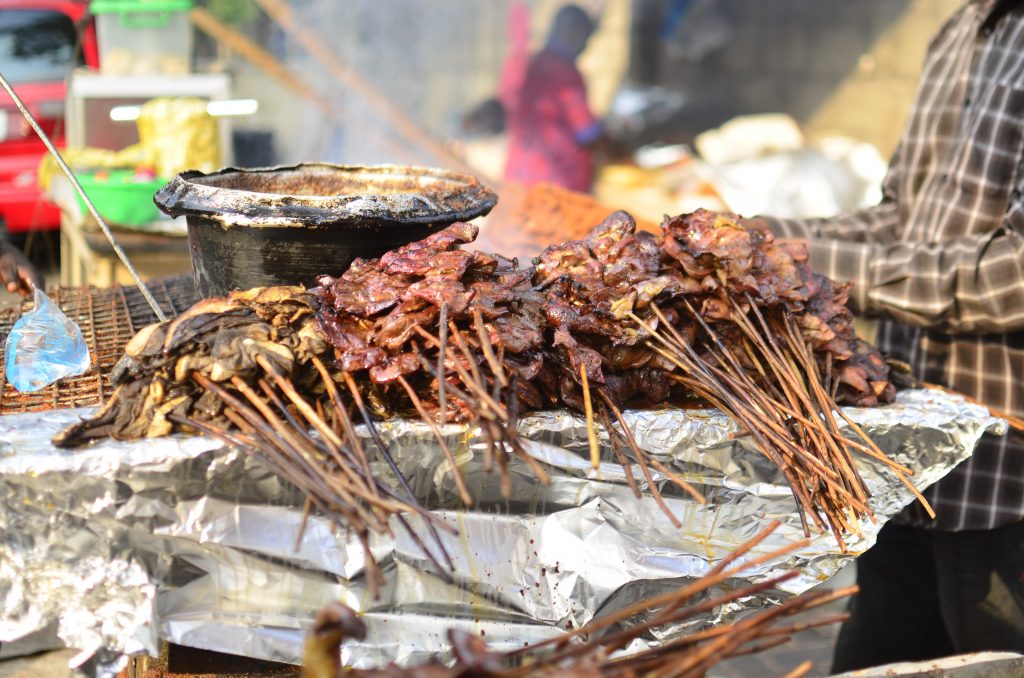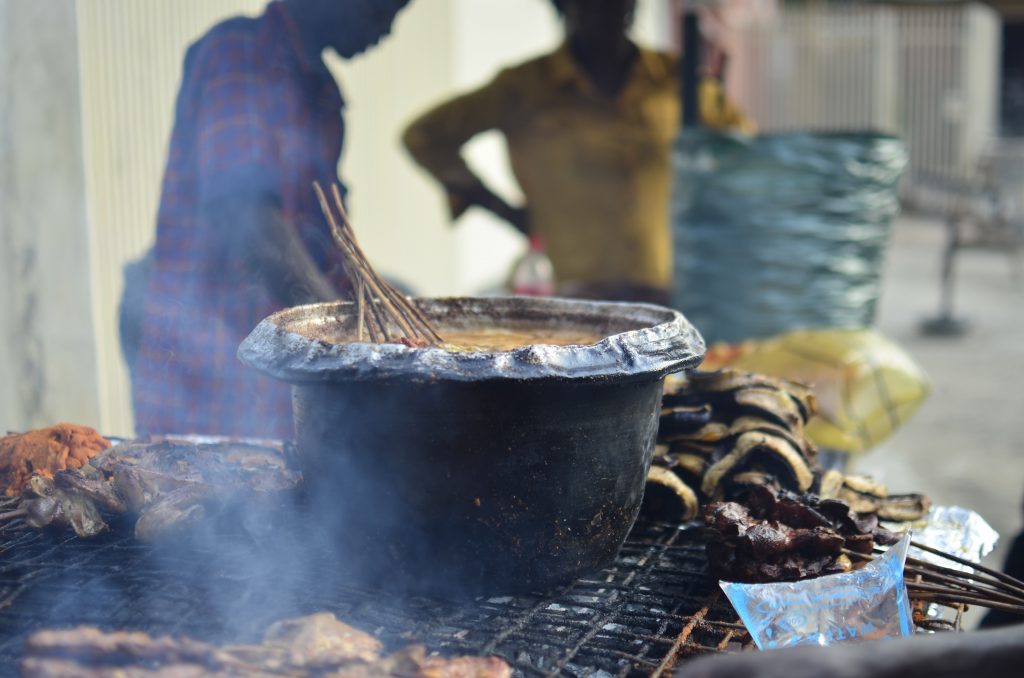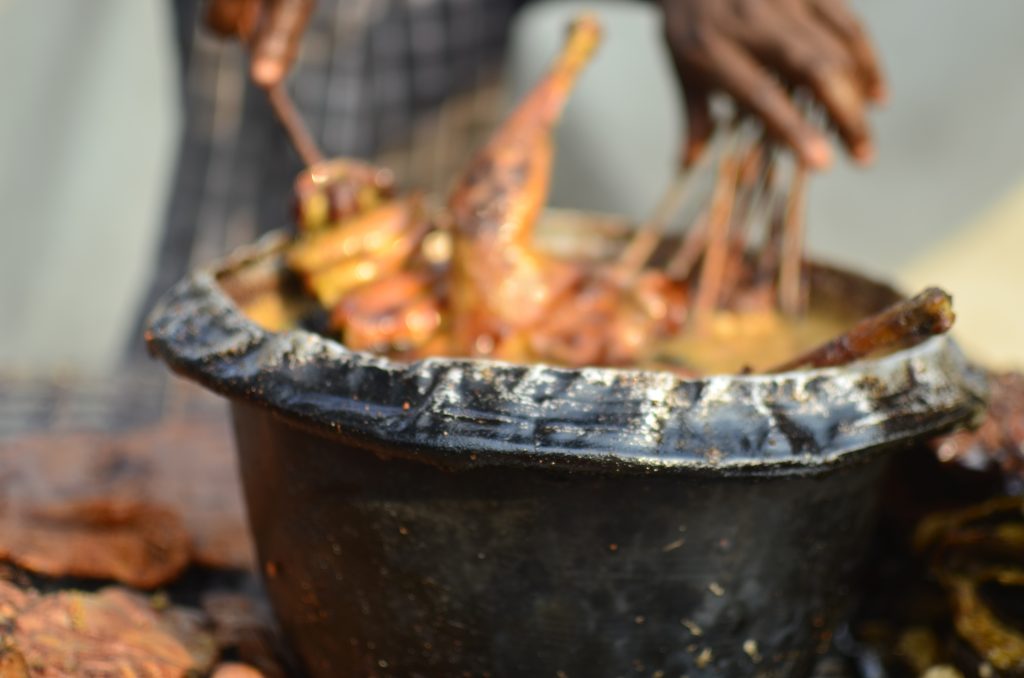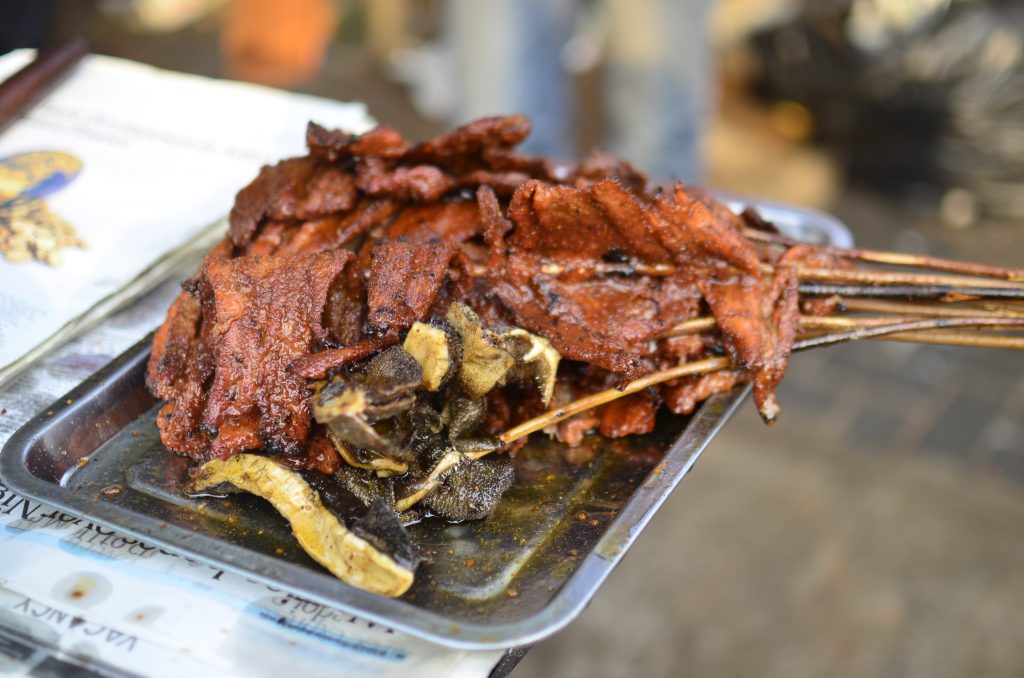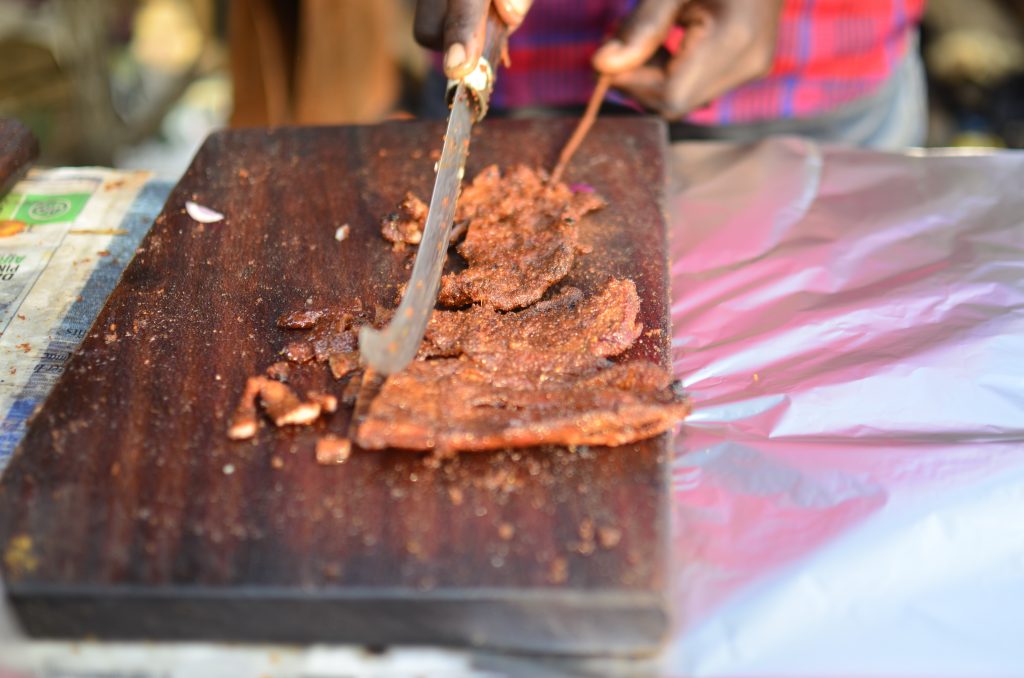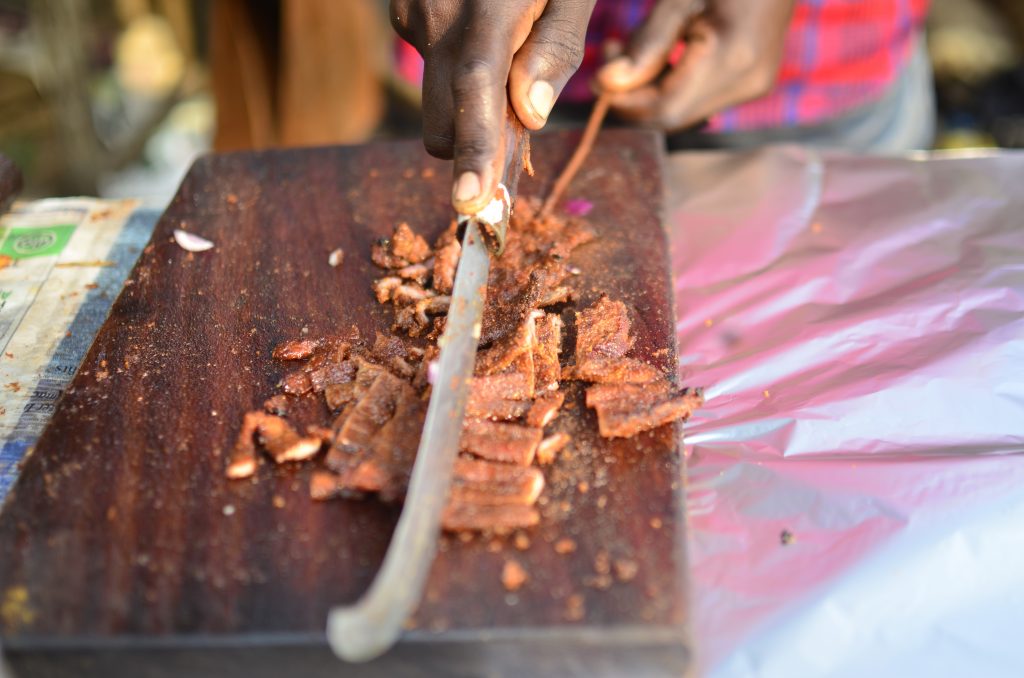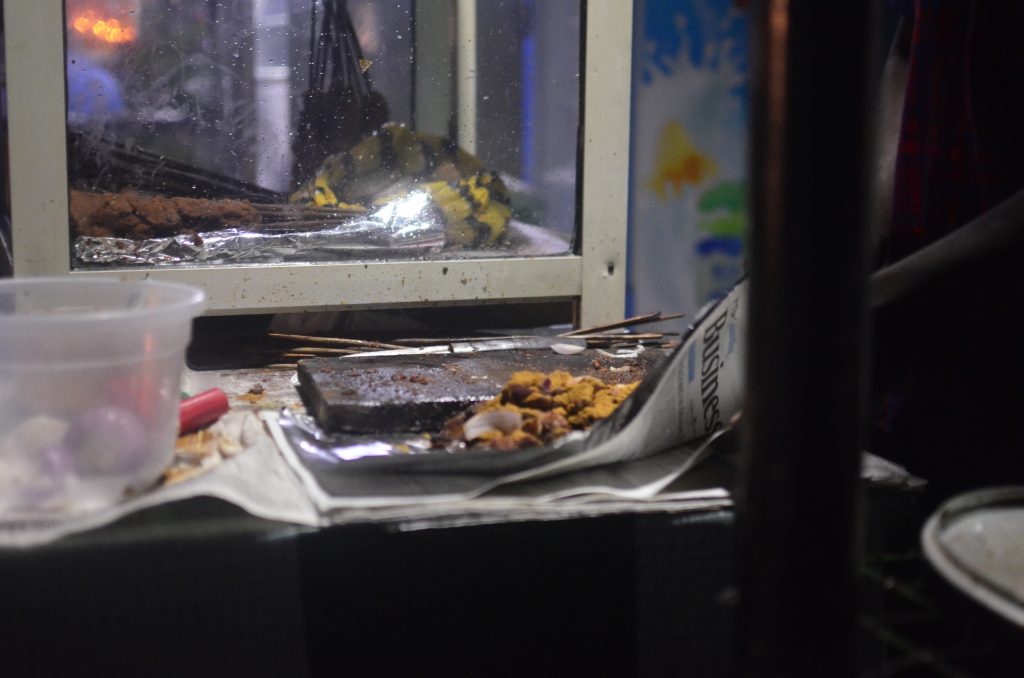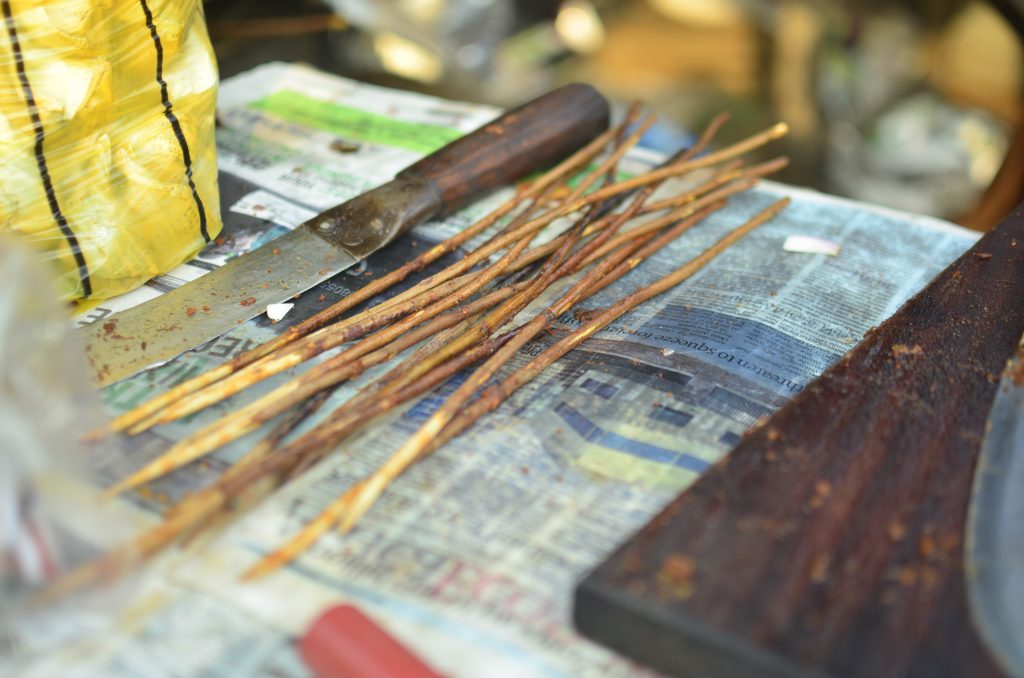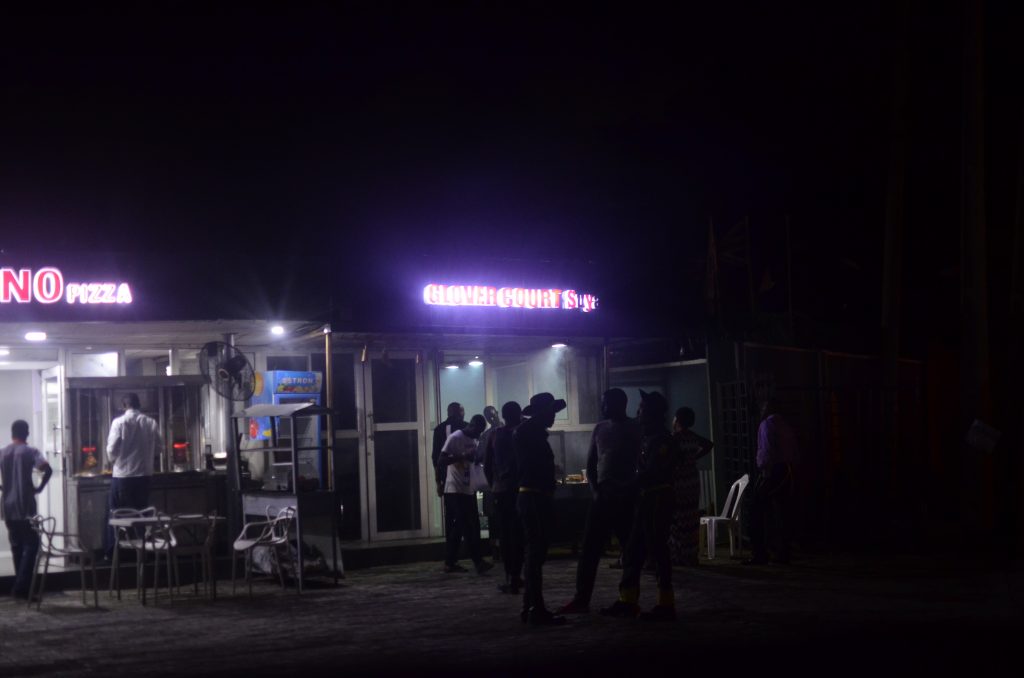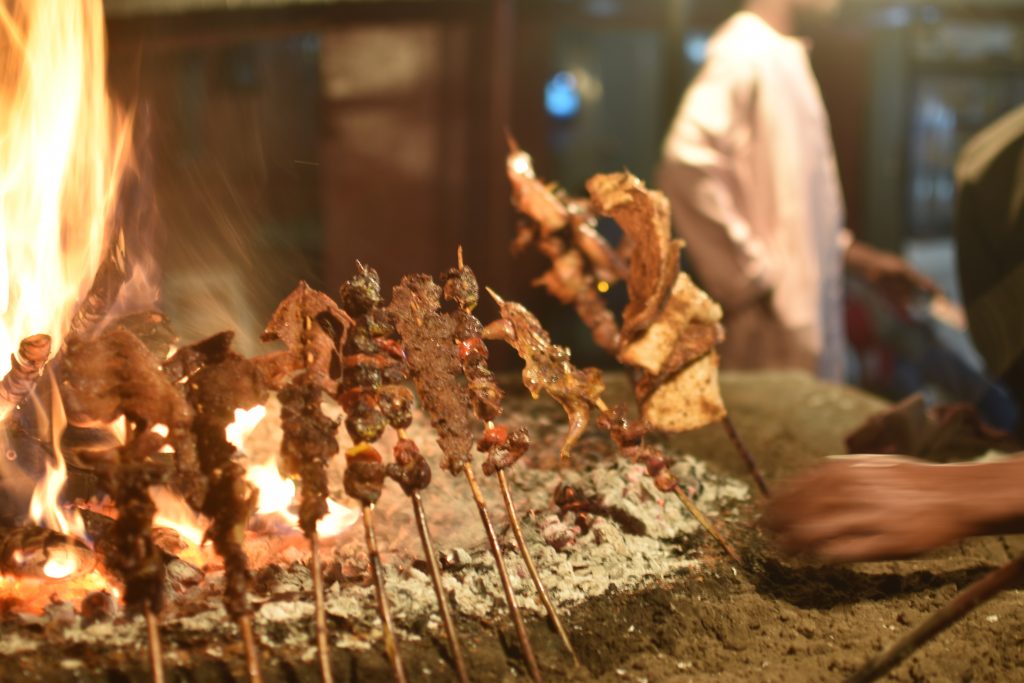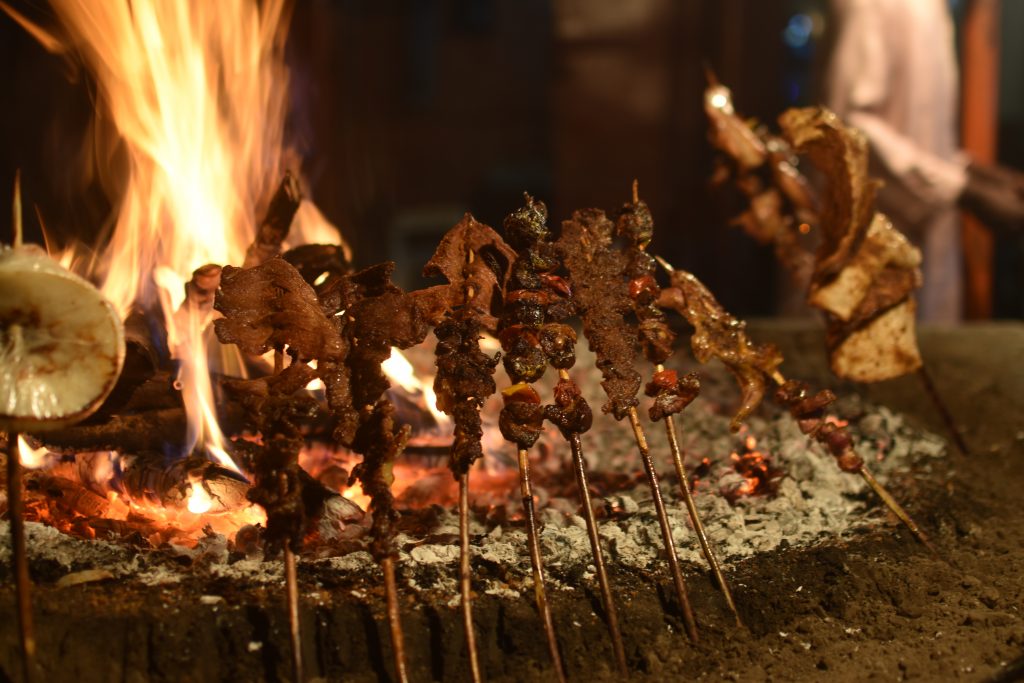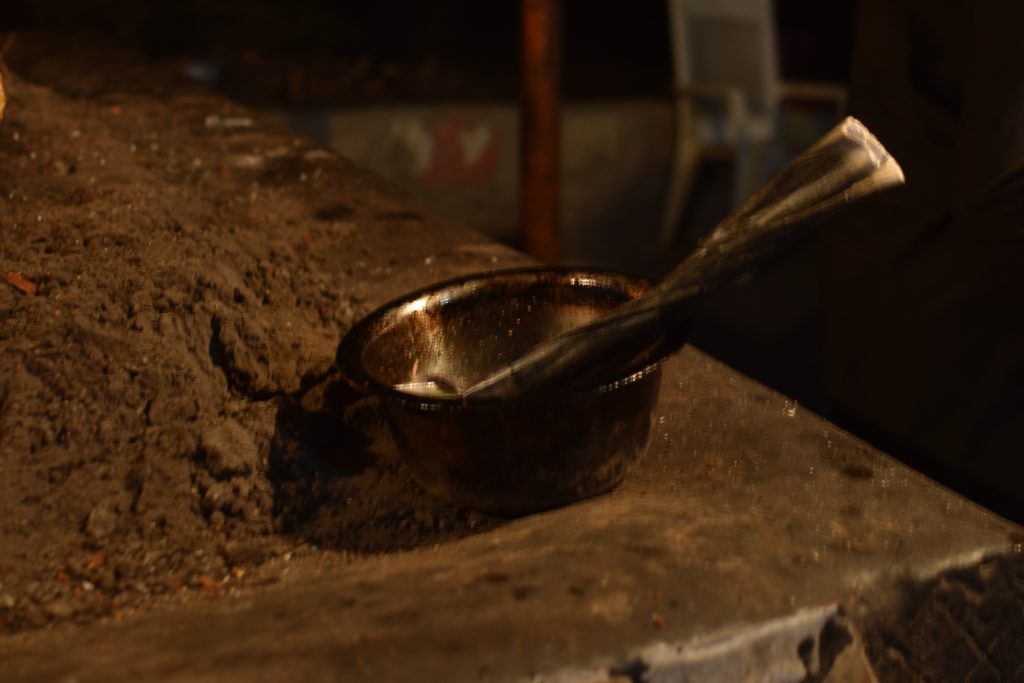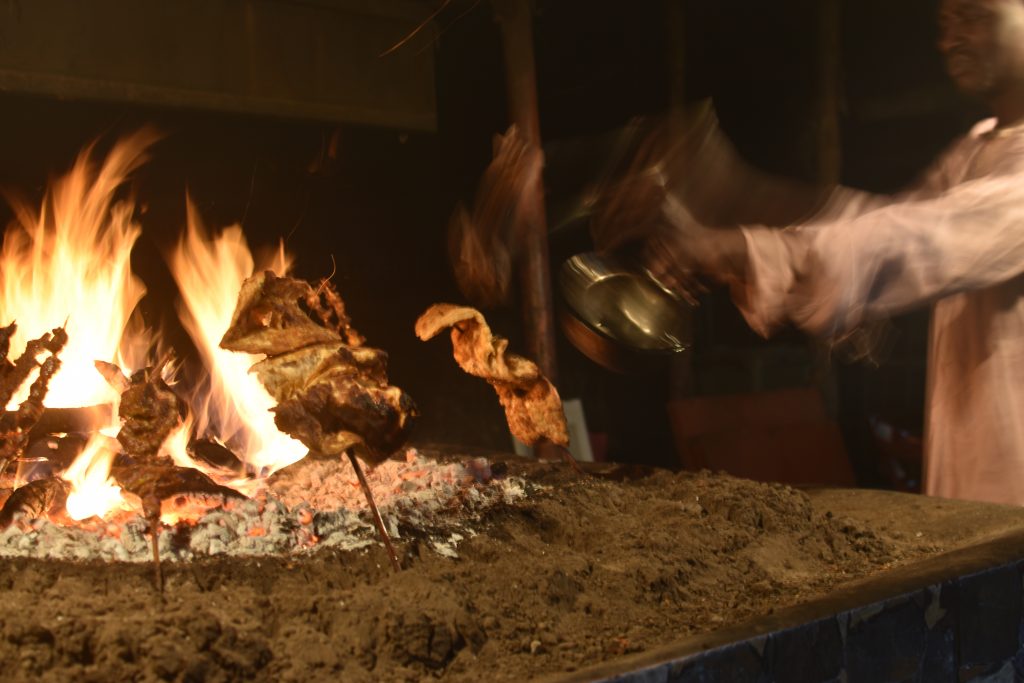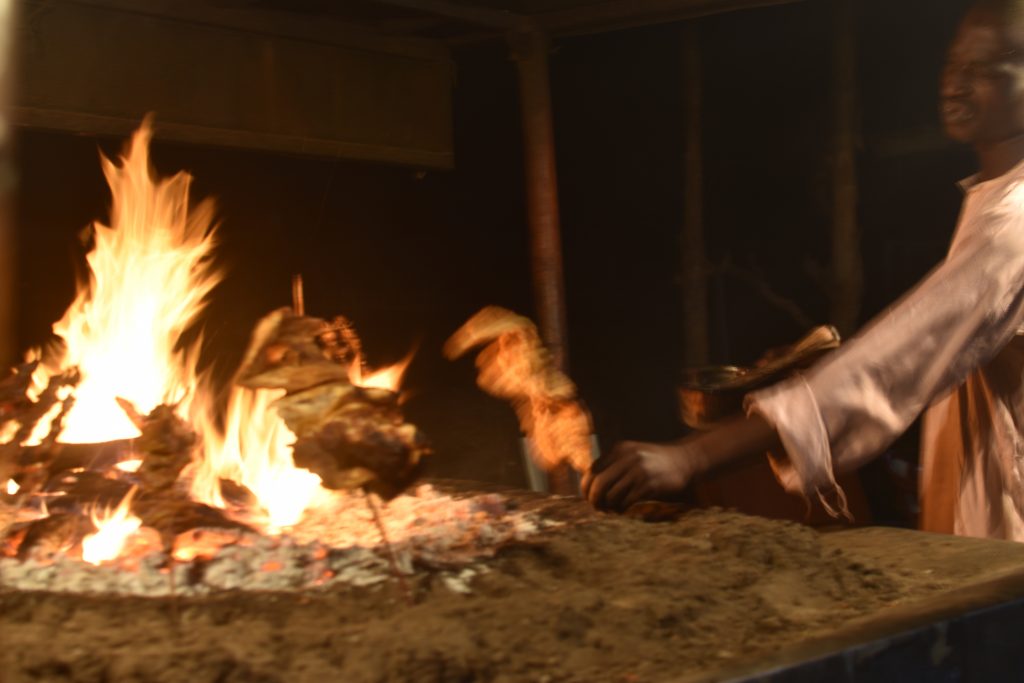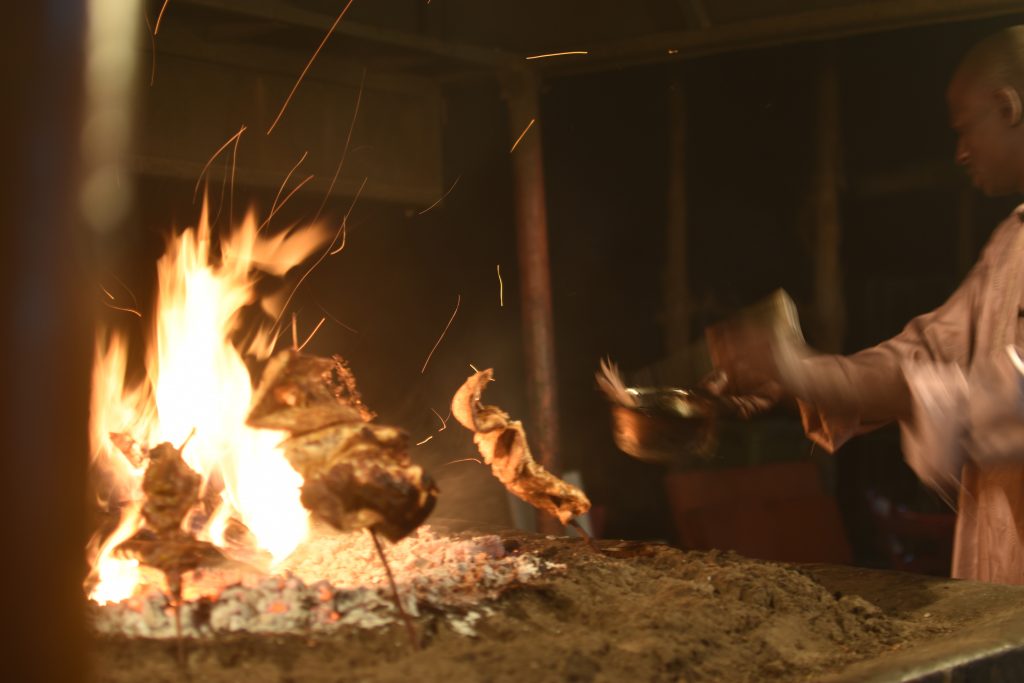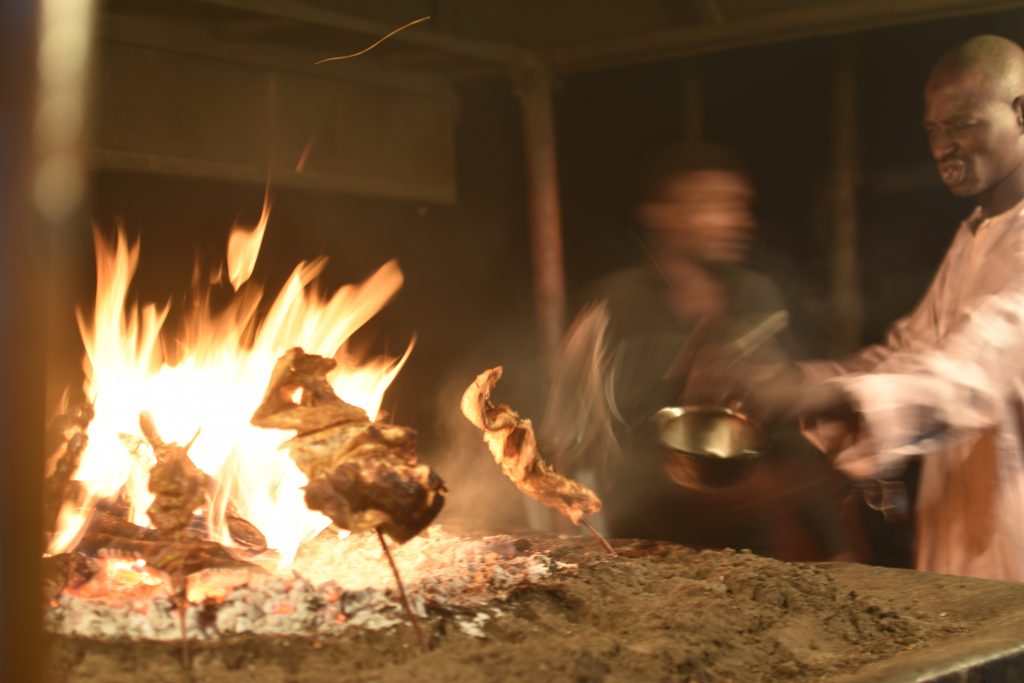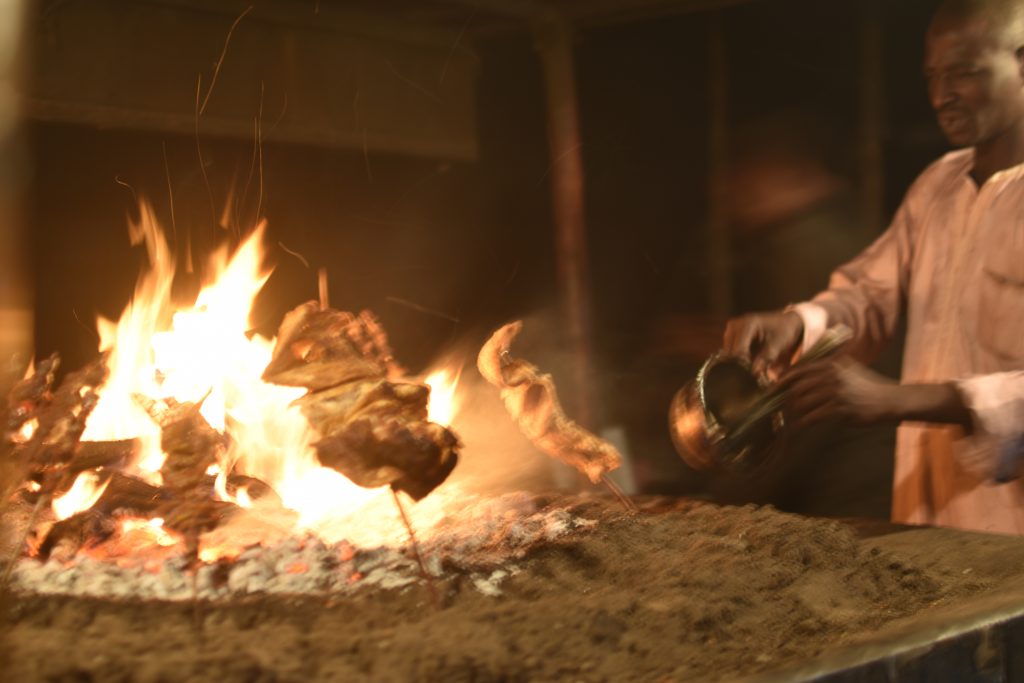[Street food series, looking at foods that cut across the income divide, eaten by rich, and by poor]
Nigerian street food at its meaty smokiest. Rich, poor, tall, short, fat, slim, girl, boy – all meet at the ‘Mallam’s grill. The North of Nigeria has a long tradition of excellence in meat preparation and handling from Tsire to Dambu, Kilishi to Balangu, these specialty meats delight palates the world over particularly in Nigeria.
Most commonly sold at night, coated in a spicy peanut rub and grilled under hot coals, this deliciousness comes with smoke and spice and the jury is out on how good for you both are.
In the past, Suya was never made at home. It was after all affordable and you were never ever really far away from a ‘Suya man’. The exception? If you were away from home, hankering after the spicy meats of your birth land. Then, and only then was permission granted.
Smoke, hygiene, produce source – lots of questions for both sellers and consumers. What are the effects of long term exposure to these levels of smoke? And the effects of smoke on the meat consumed? How is the quality of the spices assured?
Suya in Lagos
Grilled over metal drums cut in half and metal grates, suya in Lagos is cooked over hot coals. Preparation begins int he early hours of the morning with buying meat. By 4pm, it’s ready for the slew of customers who buy and eat late into the night.
Suya in Kaduna
Suya cooked around an open pit, different from the ‘grill’ version above. Masa – a traditional rice pancake from fermented raw rice and yeast is a popular accompaniment often made ahead and served warm. Without other heating resources, the masa gets encased in transparent cellophane bags and reheated by the fire – concerns about chemical leaching from the plastic are often second place to satisfying hunger and cravings.
Newspaper brushes are common – dipped in oil and used to baste the sticks of meat. Unfortunately, the news ink might be harmful. As the maker cooks, sparks and flames fly and sometimes, he is not protected.
